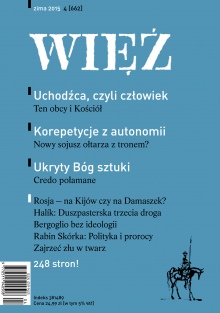
We kindly inform you that, as long as the subject affiliation of our 300.000+ articles is in progress, you might get unsufficient or no results on your third level or second level search. In this case, please broaden your search criteria.

Russia is trying to derail his country’s NATO aspirations, Milo Djukanovic says.
More...
U.S. diplomatic chief’s first trip to region will feature visits to some of the least free countries on the planet.
More...
Council of Europe pulling out of joint working group on human rights in Azerbaijan.
More...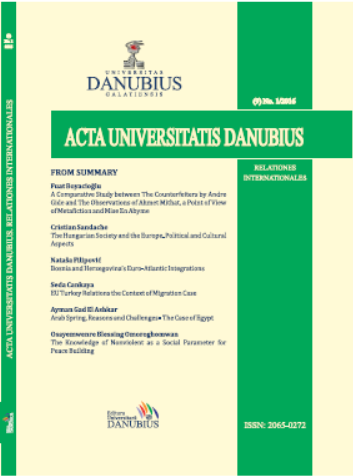
Our paper aims at analyzing the prospects of relations between the European Union and China in 2020 horizon. From this perspective we considered useful a travel insight into history of four decades of Sino-European bilateral relations. In 2015 it was marked four decades after the establishment of the first EU-China relations. During this time relations between the two sides marked important progress in all areas and today China is considered a strategic partner of Brussels.
More...
The main objective of the scientific approach consists of country risk analysis to substantiate the Foreign Direct Investments (FDI) in Romania. The thesis proposes a new approach and analysis regarding the risks to which foreign investors are subjected to, both in terms of concepts and theoretical understanding of the phenomena. As a method of analysis we have used qualitative research as it focuses on cultural studies of the place chosen for investment; on the sociological survey and it covers an extensive interdisciplinary field. The motivation of approaching so an important topic on country risk and the importance it has in the location of foreign investments in general, and especially the direct foreign investments, is justified on the one hand by the scarcity of studies in the field, and, furthermore, the impact of economic policies that it can have such research. The results or our approach are correlated with statistical data analysis, which allowed the creating a general framework on the country risk influence on FDI. The added value lies in the approach particularly complex due to the multitude of variables involved, and the risk management is an absolute necessity in today's economy.
More...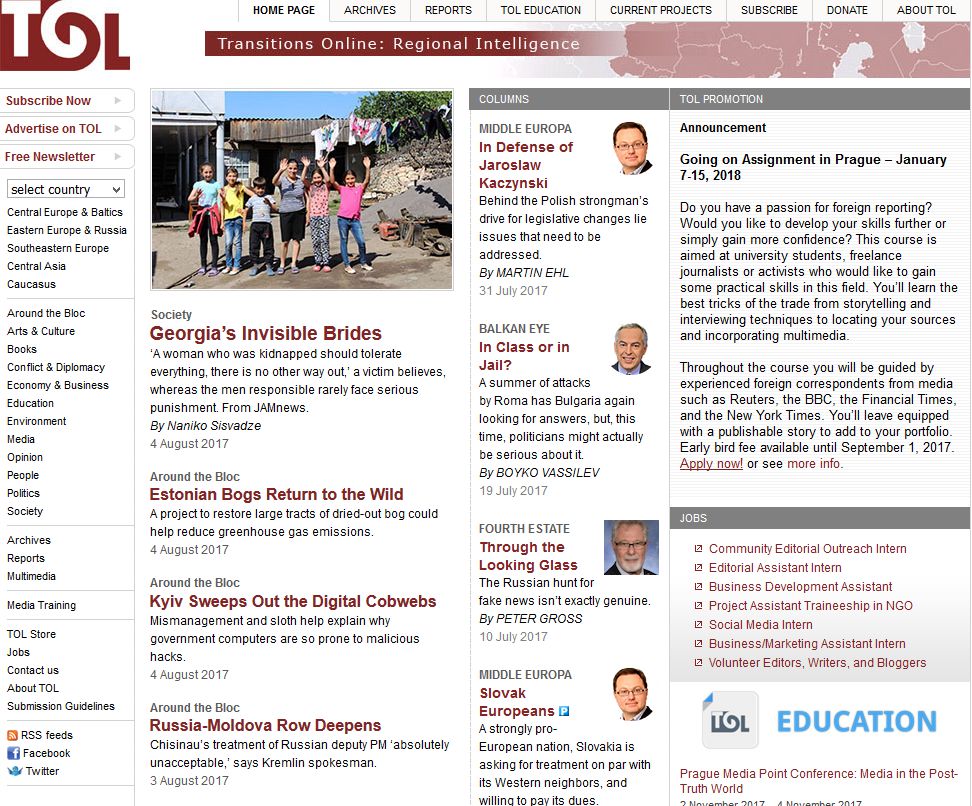
Chisinau’s treatment of Russian deputy PM ‘absolutely unacceptable,’ says Kremlin spokesman.
More...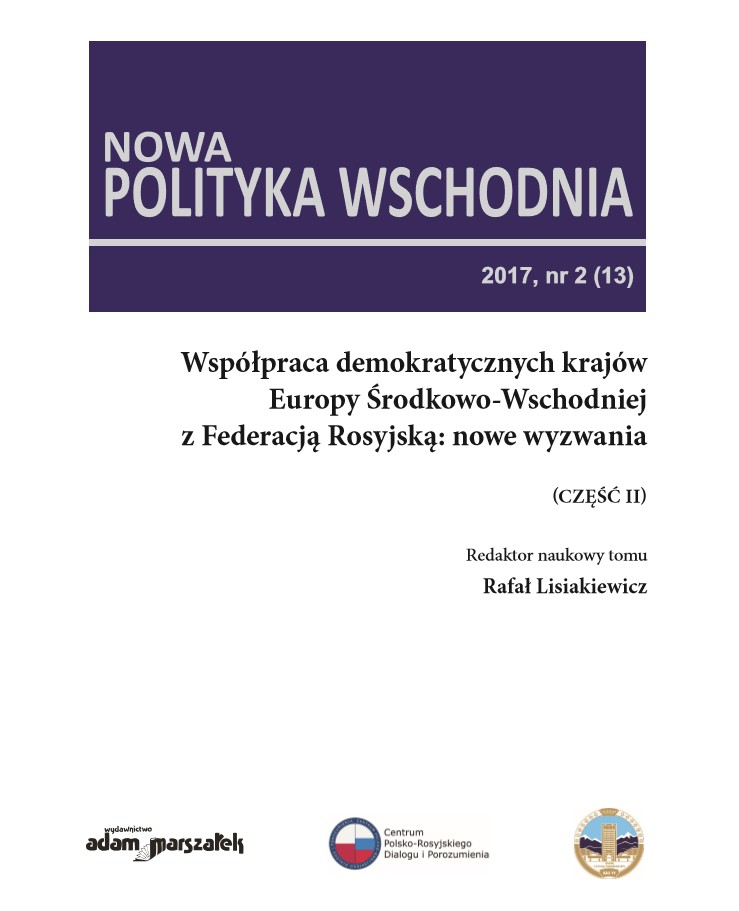
Economic relations between Russia and Eastern Europe are reasonably stable, but they are characterized by lack of scale. Therefore, sanctions/contrsanctions have not a systemic effect on bilateral relations, although they have on individual companies. Prospects for Russia’s economic relations with the Eastern European countries are evaluated in terms of their embeddedness in the overall relations between Russia and the West. It follows that is not necessary to expect a quick lifting of sanctions, despite the obvious decline over time the economic damage they cause to all parties involved. Possible in the long term mutual cancellation of sanctions regimes will likely be expressed in increase of the positive effects on normalization of trade and investment, but the magnitude of these effects will hardly be noticeable.
More...
The purpose of this work is to study the coherence for development between the Official Development Assistance (ODA) and the foreign trade of Cameroon .Sub-Saharan African countries are the least integrated countries in world trade at the same time as the region is the main beneficiary region of ODA. It is also the region where poverty is increasing most. It seems that the inefficiency of the ODA is due to an incoherence of the policy of official development aid and the other policies of the countries of the North with respect to the Countries of the South. To elucidate this paradox, an empirical study is carried out on the link between ODA and foreign trade of Cameroon. Thus the gravity model measuring the impact of the bilateral ODA flow on Cameroon's bilateral trade flow with 16 OECD countries is specified. The estimates of this model using the Ordinary Least Squares method show that the increase in the volume of official development assistance increases the volume of imports of Cameroon from this donor country. At the same time, this increase in bilateral aid causes a decline in Cameroon's exports to this partner. Through official development assistance, donor countries improve their trade balances to the detriment of Cameroon.
More...
This study examined the impact of trade policy on export diversification in Nigeria over the period 1962 to 2015. In the study trade policy was measured by trade liberalization policy and trade openness. The study employed Autoregressive Distributed Lag (ARDL) technique and the result from the estimate showed that both measures of trade policy had insignificant impact on export diversification while foreign direct investment had negative and significant effect on export diversification in Nigeria. Thus, the study concluded that trade policy has not enhance export diversification in Nigeria over the period 1962 to 2015. The study recommended among other the need for the government to de-emphasize the dependency on oil and on the discoveries of new oil wells (such as those discovered in the Southwest and Northern regions in Nigeria. The continuous emphasis on oil would incessantly decline the drive of the government in diversifying the export base of the Nigerian economy.
More...
This study examined the role of transport infrastructure in attracting foreign direct investment in South Africa. The study used quarterly time series data for the period of 1994 to 2014. The Johansen cointegration and Vector Error Correction Model (VECM) were used to determine the impact of transport infrastructure on foreign direct investment in South Africa. The explanatory variables in this study were market size, transport infrastructure, labour cost, exchange rate and corporate tax. Results from this study showed that market size, transport infrastructure and corporate tax have a positive and significant impact on foreign direct investment, while exchange rate is positive but insignificant, and labour cost has a negative and insignificant impact on foreign direct investment in South Africa. The policy recommendation that comes from this study is that efforts should be made to improve the standard of transport infrastructure in order to enhance and attract more of foreign direct investment. The government should follow policies that will attract foreign direct investment.
More...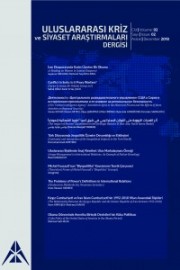
Former US President, Barack Obama, began taking important steps regarding Cuba. By shifting from a status-quo foreign policy to engagement policy, a change of motto was initiated. The positive effect of the Cuban chief of the state Raul Castro cannot be neglected in this process. In this study, after laying emphasis on the causes of the Obama period Cuban initiative policy, the course of action within the normalisation of Washington’s policy will be analysed. Through the current course of action, the strategic achievements and persistent issues will be evaluated in accordance with scientific principles and materials.
More...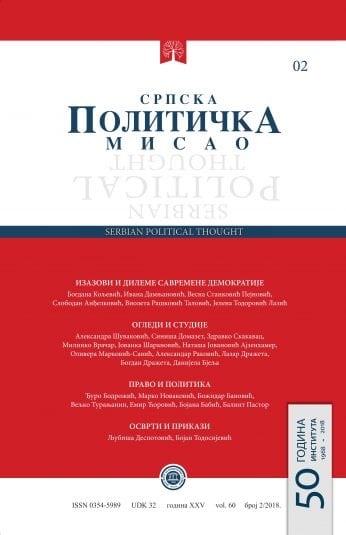
Trade unions in Serbia are fragmented, weakened and faced with the erosion of labor rights and further decomposition of the working class. Because of this, this paper aims to problematise and analyse the position of trade unions and the reasons why they lost a single platform, trust and reliable political partners. In the focus of the analysis are the different mechanisms and tools for influencing the process of political decision-making. The basic idea I advocate is that trade unions should primarily increase their own integrative power, connect and network with friendly civil society organisations, formulate their own political offer and thus strengthen their bargaining power in relation to political actors and institutions.
More...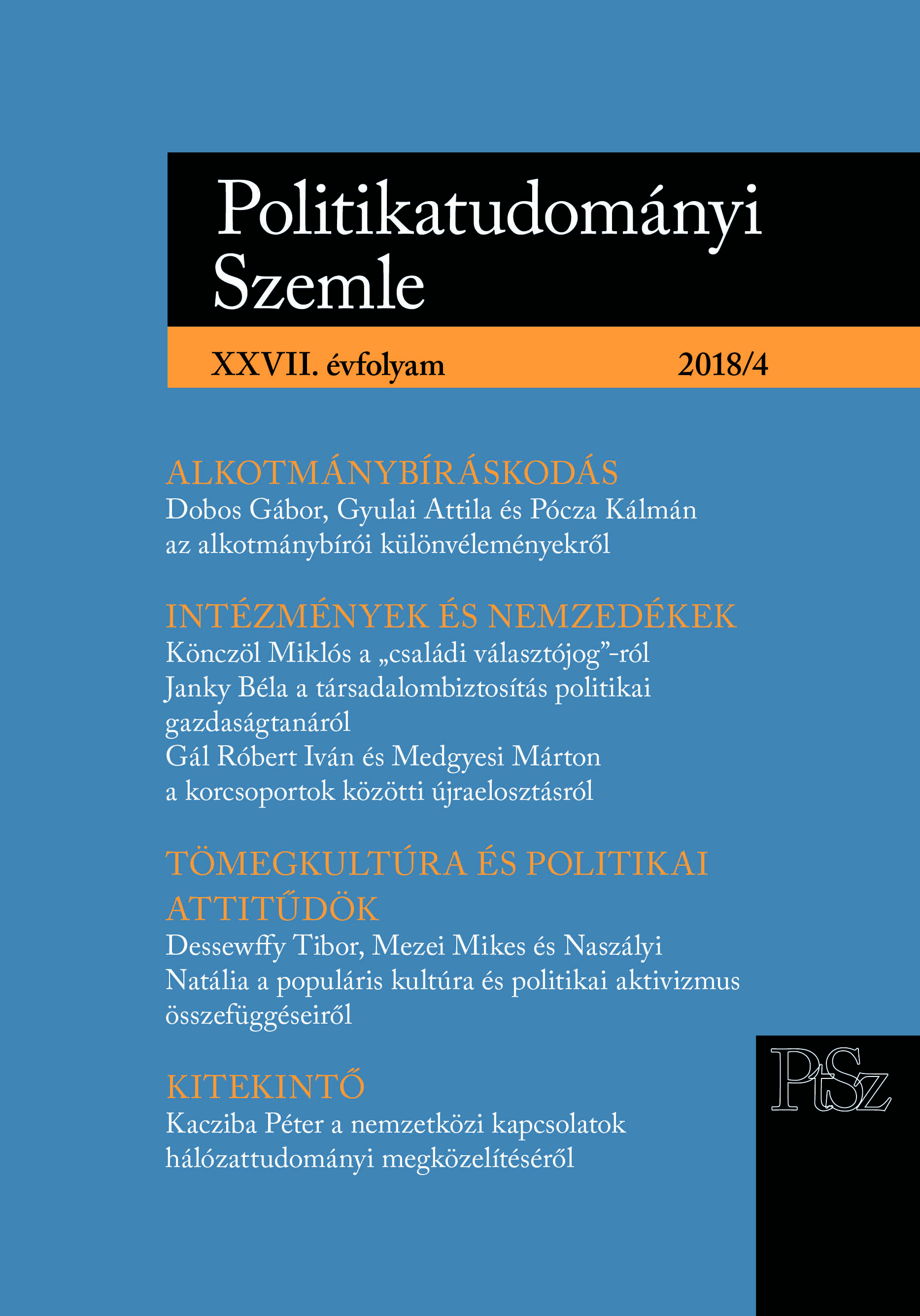
The increasing complexity of the international sphere and of interactions at the international level challenges the traditional methodological possibilities of the International Relations (IR) discipline. The dramatic increase in the number of state and non-state actors and the accelerated interactions of technical innovations and globalization require the development of new methodological tools that can trace and analyze international complexity. Of these methodological possibilities, this study focuses on the disciplinary application of network science: it examines the history, the essential bibliographical milestones, methodological alternatives, as well as the opportunities and limitations of the network science approach to International Relations. The primary purpose of this paper is to briefly present the most important trends of the network approach in the field of international studies.
More...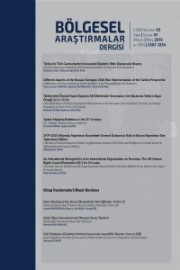
Although the connection between the Turks and Malays could be traced back to the 1500s, relations generally remained static until 2000. In the 21st century, relationships have started to develop in a multidimensional way in the political, economic and cultural spheres. The article concluded that the progress in Turkey Malaysia relations in the 2000s is closely related to the changes in the foreign policy of the two countries. Another result of this work is that the actors do not put forth a strong political will to further develop relations in practice.
More...
The main purpose of the article is to present a relations of the newly created entity on the international arena of the Slovak Republic and the Republic of Poland. Time caesuras include the period from 1993 to 2002. In 1993, the establishment of the Slovak Republic was proclaimed and in 2002, both Slovakia and Poland completed the accession negotiations in Copenhagen related with joining the European Union. The article is based on the assumption that in the analysed period the relations of both countries were determined by striving for be a part of Euro-Atlantic structures.
More...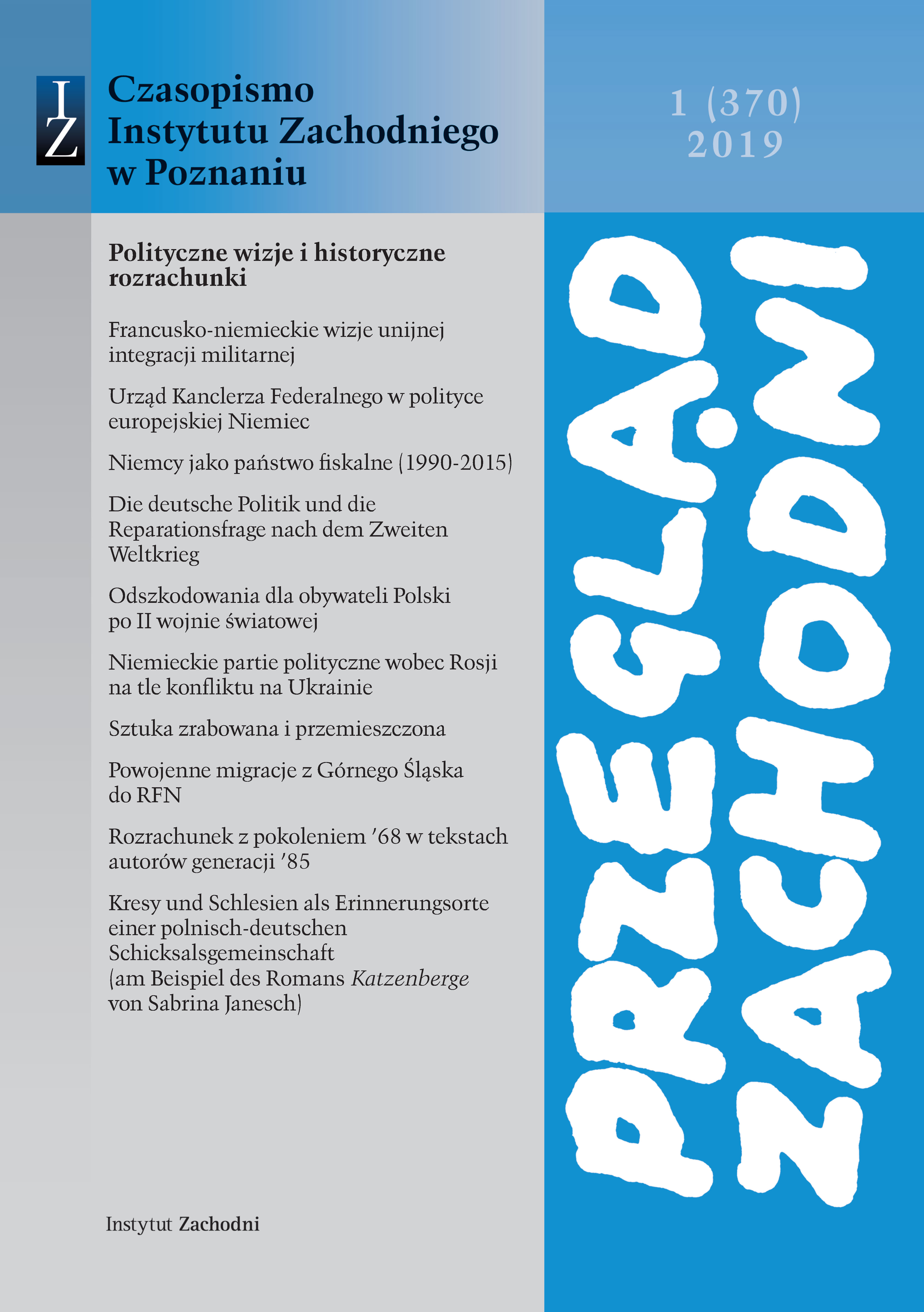
Germany has shown in its history great interest in Central and Eastern Europe. This approach did not change after the reunification in 1990. The Eastern policy of Germany focused on such activities as strengthening political and economic cooperation with the countries of Central and Eastern Europe and supporting their aspirations for membership in the European Union and NATO; wide-ranging cooperation with Russia; supporting Russia’s involvement in cooperation with organizations from the Western world; financial support for economic transformation in Russia. From the perspective of Germany, Russia was perceived as one of the most important partners in the process of strengthening international security. In turn, the Orange Revolution of 2004 drew Germany’s greater attention to Ukraine. The conflict in Crimea and Eastern Ukraine, initiated in 2014, became the cause of deep concern in Germany. The article aims to discuss Germany’s attitude to the Russian-Ukrainian conflict in 2014-2018 - the position of the German government and the main political parties. The author mainly refers to official documents as well as statements of politicians, mostly taken from the press and websites of German political parties. The research problem raised in the article is the attitude of German political parties to Russia following the annexation of Crimea and support of separatist activities in the East of Ukraine. The author verified two research hypotheses: – Traditional political parties, rooted for several decades in the party system of West Germany, show a high degree of principled attitude to the observance of international law. The consequence of such an approach is a critical position at the official level on Russia’s actions in Ukraine. This does not interfere with the phenomenon of pluralism of views on this issue within particular parties. – The political circles of the Eastern federal states, irrespective of the party colors, due to the economic interest tend to lean towards a more flexible approach to Russia’s policy, including limiting or abolishing the sanctions regime. In implementing the goals of the article, the author used appropriate research methods. He decided to resort primarily to elements of institutional and legal analysis, which was used in the examination of documents. In addition, he applied the comparative method, indispensable for comparing the attitude of German political parties to the title problem.
More...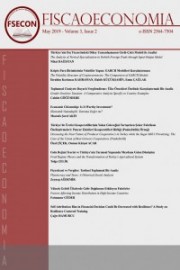
The structural transformation in production and foreign trade in global economy concentrates on global value chains and vertical specialization. These two concepts specifically clarify the reasons why trade in intermediate goods increased more than trade in final goods. This comparison depicts trade-in value added, in general, and trade in domestic and foreign value added in export and import goods, in particular. In this study, vertical specialization ratios for 35 distinct sectors, which were grouped based on ISIC Rev. 3 criteria for a period between 1995 and 2011 in Turkey, were calculated by using World input-output Database (WIOD). In addition, the fluctuations in domestic and foreign value added in gross export were analyzed both at aggregate and sectoral levels. Findings of the study indicated that vertical specialization ratio for Turkish foreign trade has shown a drastic change. This study also highlighted that the sectors that revealed the highest intensity level in vertical specialization were respectively basic metals, fabricated metal and transport equipment.
More...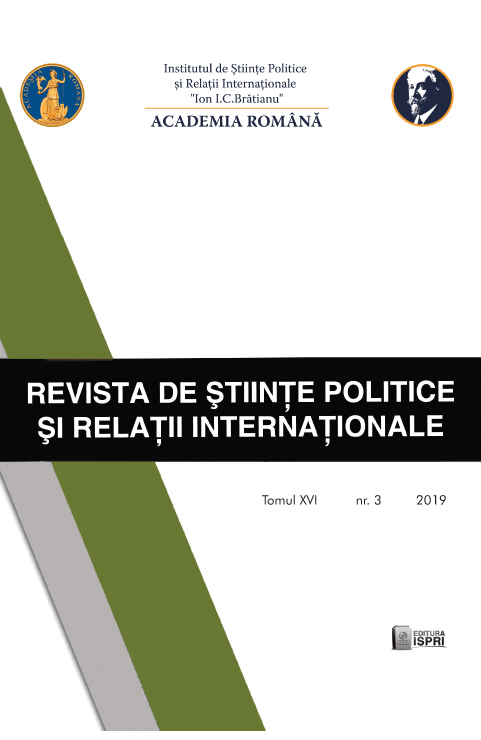
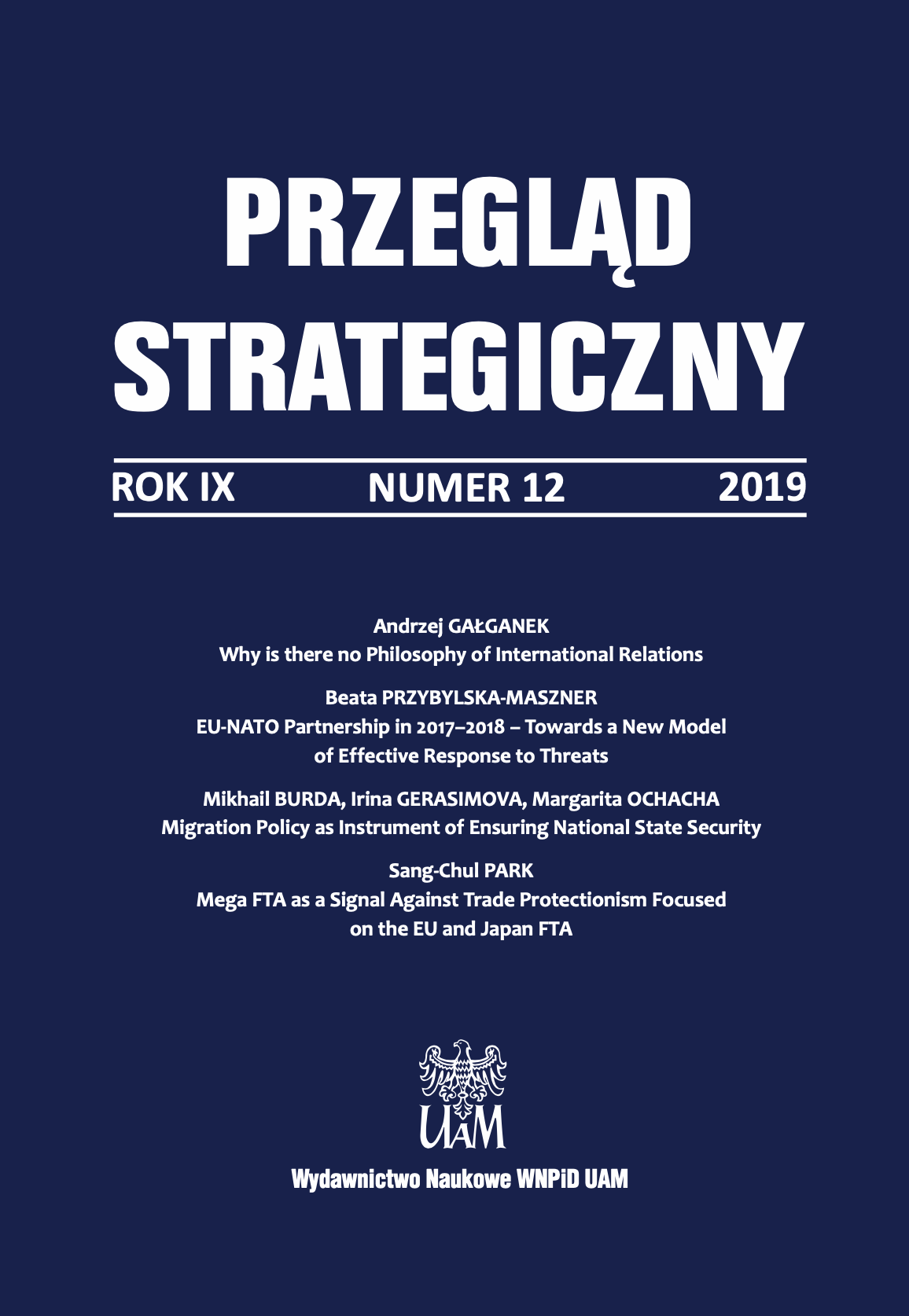
Why is there no philosophy of International Relations? Why, despite the significant intellectual and institutional development of International Relations after World War II, has IR failed to generate any ‘grand ideas’ that would influence the broadly understood humanities? None of the theories of international relations indicates the exceptional features of interna- tionality as its foundation. None of these theories formulates a fundamental claim to its subject matter in International Relations the way geography, history or sociology do. This leads to the conviction that international relations do not have to be formed by aspects of the social world that are specific to them, and can be interpreted in terms of ideas imported from the disciplines that deal with examining aspects relevant to them. The basic disadvantage of this openness of International Relations to other disciplines is the lack of reflection on its own ‘deep ontology.’ This seems to be the most important reason for the lack of a philosophy of International Rela- tions. The author accomplishes two basic goals in his text. Firstly, he undermines the legitimacy of the three attitudes prevailing in IR on understanding internationality, which he calls internal- ism, externalism and correlationism. Secondly, he presents the essence and consequences of the negative character of IR, which involves the absence of the philosophy of IR and studying internationality in the same manner as political science does. The author argues that understanding this ‘strange orthodoxy’ can be a means to overcom- ing it, thereby opening up the possibility of conceiving the ontology of IR, or outlining the path leading to the philosophy of International Relations. Finally, the author refers to the proposal of Justin Rosenberg, to then present an idea for an ontology on which the philosophy of Interna- tional Relations could be founded.
More...